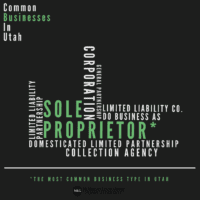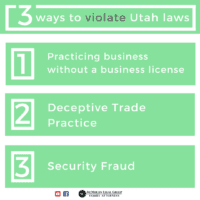What is Real Estate?
What is Real Estate?
This article addresses the basics of real estate law.
Definition
Real estate is defined as “property consisting of land or buildings”. If someone owns land or a house, they own real estate. Someone can own real estate locally, nationally or even internationally. The real estate that they own can be houses, condos, apartment buildings, business buildings, etc. According to real estate law, if the owner of the real estate just owns the land that a building is built on, they are considered to be the landlord. The buildings then are either rented or bought – but the landlord still owns the land that they are built on.
Should I hire an attorney?
If you are in a real estate transaction and have many questions – ones that the seller and/or a real estate agent cannot answer – hiring an attorney may be the best option. An attorney will answer real estate law legal questions and offer the best help concerning your concerns resolved. Consulting with an attorney who knows real estate law before you hire them is recommended – there are many attorneys that offer free consultations, so you can get a feel for what their service can do for you before you pay them. If the questions you have about the property are related to real estate law, hiring a lawyer is recommended, especially if a real estate agent involved does not know the answers to your questions. When it comes to real estate agents getting paid for selling a property, their cost is usually paid by the seller of the property. However, sometimes the cost of the real estate agent gets passed to the buyer.
Landlords
Landlords can own any type of real estate, and that makes them a small business owner if they are to renting out housing. Most commonly, a landlord owns an apartment building, and the landlord rents his/her apartments to renters. The people who live in the apartments do not own the apartment just because they are paying for it – they are simply being allowed to live there because the landlord is allowing them, and they are paying the landlord, according to real estate law.
Real Estate Law
Real estate law governs who may own and use the land (and the buildings on the land). The real estate can be privately owned, or public (commercial). The land and the buildings can be sold, purchased and rented. Each state and county has different real estate laws regarding the process of real estate transactions, and how those transactions are recorded. Much of the transactions now are done electronically, and the way those are recorded are much different now than they were twenty years ago.
Common problems:
- Fraudulence: lying or deception in order to get the buyer to purchase the home is fraudulent. If there have been repairs done on the house that are not disclosed, that is considered lying and is fraudulent.
- Disagreement – many properties in Utah are owned by multiple parties. When there is a decision that needs to be made – a repair, re-finance, or even selling the property – there can be disagreements between the property owners, which can result in legal action. One extreme result is when there is an absolute disagreement, one that cannot be resolved, and legal action can be made to divide the property between the owners.
- Contracts – when there are contract issues in a real estate transaction, hiring a lawyer experienced in real estate law will be the best option.
Important Terms:
- Title: If someone has the title to land or a building, they own whatever piece of real estate is stated in the title.
- Mortgage: A mortgage is a loan that a buyer has for the entire price of the
- Foreclosure: If the owner of the property does not pay the bills, a lender takes control of the property.
- Closing: When property is purchased, the buyer and seller meet to ‘close’ the deal, in which the ownership of the property gets transferred.
- Escrow: A portion of the property or money that is held by a third party.
- Real Estate Agent: A negotiator for property sales, of which they are licensed to do so.
- Real Estate Broker: Also an agent, a broker can hire agents to work for them. A broker must be licensed in the state they are going to be practicing in. A broker must have three of the last five years as a full-time active experience in real estate, or they must have two years of full time active real estate experience with an additional one year of professional real estate experience.










